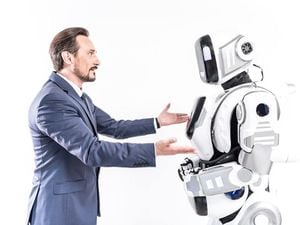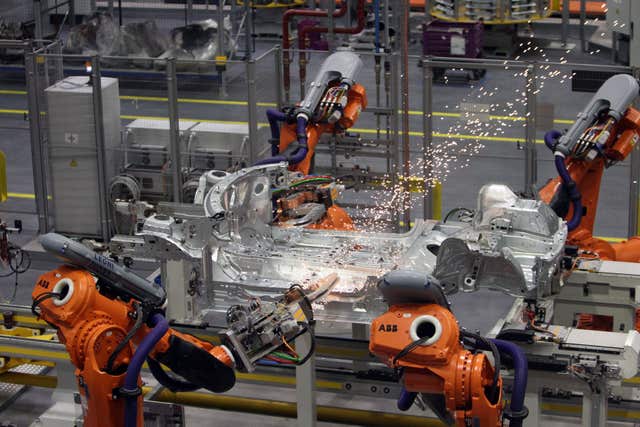Embrace an android: Labour study warns UK must boost research and development spending in technology
Labour’s Tom Watson has said “robots can set us free”.

Britain is unprepared for the technological revolution and should increase spending significantly on research and development (R&D) to keep up with advances in areas such as robotics and artificial intelligence, a Labour-commissioned report warned.
But the Future of Work Commission said it was also vital to introduce new protections through a Charter for Good Work, to stop employers using technology as a “new tool of worker exploitation”.
The report was welcomed by Labour deputy leader Tom Watson, who said it showed that predictions of new technology’s apocalyptic impact on the world of work were “far too pessimistic”.
Calling on Britain to “embrace an android”, Watson said the country had too few robots, not too many, and that – properly regulated – “robots can set us free”.

These proposals include spending on R&D and innovation to be fixed at 3.5% of national income by 2030 and reform to the tax system to reward companies which invest in technology and provide financial incentives to do so.
They also include a move towards a single category of “worker” in UK law, to ensure employees do not suffer by being classed wrongly as self-employed or casual and an increased collective organisation to protect workers’ security and bargaining power and rights to flexible working and leave for learning, to allow employees to gain new skills as their current roles become mechanised.
Speaking at the launch of the commission’s report, Watson said Labour would consult on its recommendations for new workers’ rights in the era of the gig economy.
He warned that technology was being used too often to allow new forms of exploitation through workplace surveillance, shift management systems suiting employers but making it impossible for staff to plan their lives, and app-based businesses which treat workers as self-employed when in fact they are regular employees.

“Our report found that the most apocalyptic predictions about the impact automation will have on jobs are far too pessimistic,” said Watson. “We believe automation and artificial intelligence can, with the right policy framework around it, create as many jobs as it destroys.
“If the heavy lifting and routine tasks of the future can be carried out by 21st century machines, then the workforce of the future will be free to focus on activities that generate greater economic benefits for a greater number of people.
“That is liberating. So I suppose what I’m really saying is – robots can set us free.”
Seamus Nevin, head of policy research at the Institute of Directors, said: “Many of the key recommendations within Tom Watson’s Future of Work report will resonate with employers up and down the country.
“The instinct to be techno-positive, whilst making targeted proposals for ensuring that the rising digital tide really does lift all boats, is the right one. This will ensure the UK makes the most of the opportunities technology is creating for everyone.”





